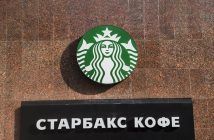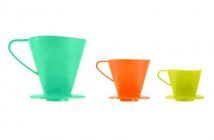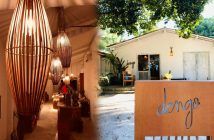In the world, there are only six schools that train professionals to work in this millionaire market.
Is water all the same? According to the Water Sommeliers, who are rising professionals, water is definitely not the same everywhere! Quite the opposite. Currently, there is an international premium water market, precisely where most water sommeliers operate. But make no mistake: all professionals connected to the world of haute cuisine, wine, beer, whiskey, special coffee, tea etc., should be more interested in the topic, since water is essential in the preparation of food and drinks.
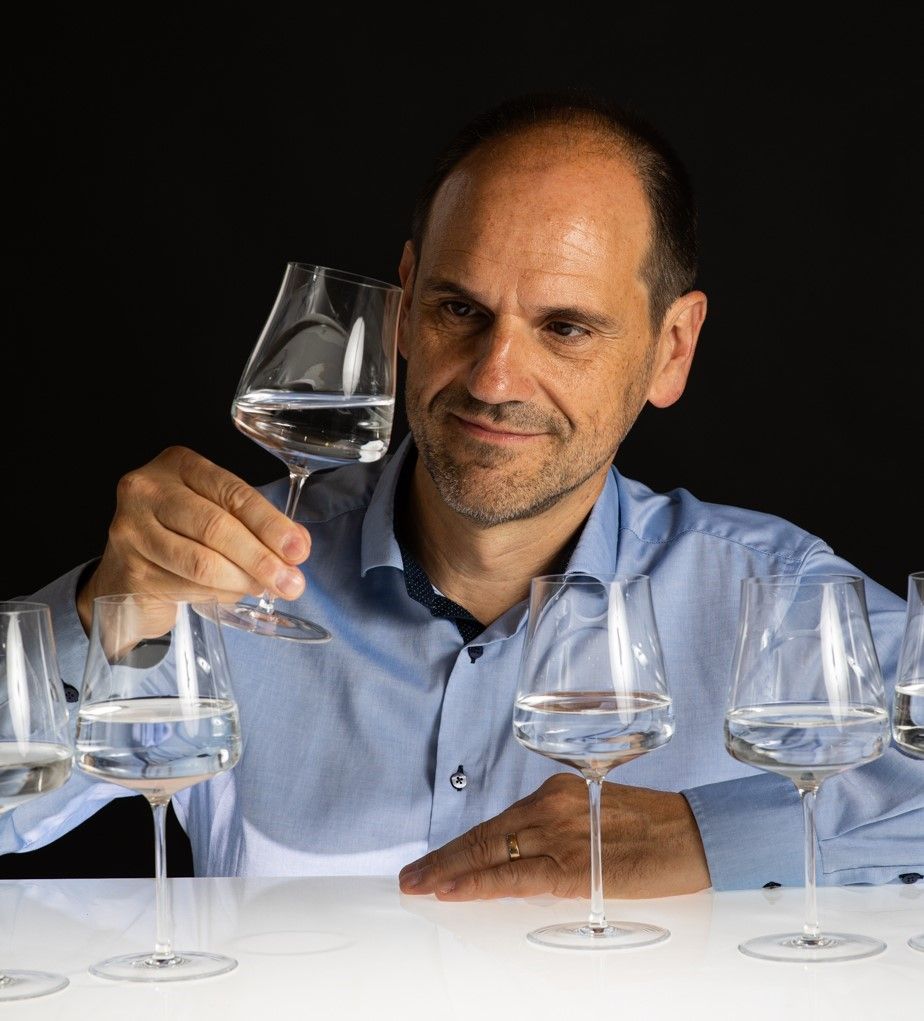
Peter Schropp, creator of Water Sommelier – Union. Credit: Peter Schropp
It all started in the early 2000s, with a need for greater knowledge of mineral waters on the part of Germany’s master brewers, since the quality of the water directly influences the production of the best beers.
German chemist specializing in food and beverages, Peter Schropp, specialized in fruit and water juices and taught (still teaches) sensory analysis for future brewing masters at the famous Doemens Academy Germany, www.doemens.org.
Water flavors wheel
Until he realized that there was a still untapped market and, 10 years ago, he created the first water sommelier course for Doemens. Afterwards, he founded his own school in Munich, the Water Sommelier Union (www.watersommelier-union.org), together with his wife, also a food chemist, Marion Schropp. “I was very impressed when I realized that each mineral, like sodium, magnesium, potassium, calcium etc., has a totally different taste. I realized that we could do with water the same as we did to beer. From then on, it took me two years to develop the whole course and, as a matter of fact, I created a wheel of flavors to assist in the sensory analysis of mineral water,” he says.
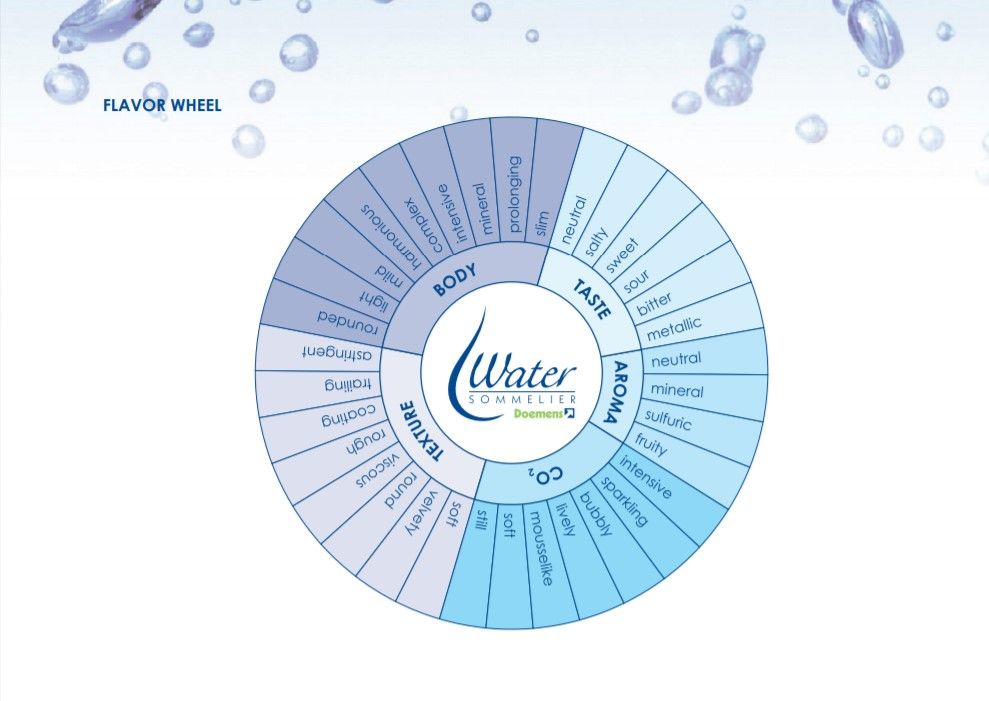
Credit: Peter Schropp
Germany is a large mineral water market, with a consumption of ½ liter per day, per inhabitant, with around 500 mines of mineral water with the most different mineral components and which are bottled by more than 500 different factories. The preference of German consumers falls naturally to carbonated waters.
In 2011, Peter inaugurated the first class of the Water Sommelier Union, aimed at students who already worked in mineral water companies in Europe (by the way, a very rich and diverse market). In a short period of time, people with other profiles also became interested in the subject. “In a second phase, the people from gastronomy, namely starred restaurants, from the big hotel chains etc., started to sign up”, explains Peter.
Classes are face-to-face and, in the beginning, they were taught only in German, with a duration of two weeks. In 2015, the school started offering the course in English, in the same format, at a cost of 2,350 euros per student.
In his courses, Peter emphasizes the sensory analysis of the minerals that make up the water, and delves into the study of product categories such as natural mineral water, naturally carbonated water, purified water (without minerals), and tap water. “We tried around 80 different watermarks, we changed our perceptions and tastes”, he explains.
“There is no best mineral water in the world. All are pure and what changes is their use.”
All this interest in mineral water is exemplified by the hundreds of specialty liquor stores across Germany. “Unlike Brazil and other countries, we don’t usually buy water at the supermarket, but at stores specializing in drinks. The vast majority of water is sold in glass bottles, which are returned to the establishments. And, preferably, we want to hear the opinion of a professional about its characteristics. For example, we choose our water for different purposes. If I am a sportsman, I will long to drink water with more minerals; if I am a vegetarian, I will choose water with more calcium to prevent osteoporosis. If it is water just to be consumed on a daily basis, I will choose another one, and if it is to be served with wine, it will certainly be a totally different one, with a small amount of minerals so as not to disturb the taste of the wine on my palate,” he says.
The next class of the international Water Sommelier course at Peter’s school will take place in March 2021, with a class of no more than 11 students, depending on the coronavirus. “I hope to have the first student from Brazil, since the only Latin pupil trained here was a Mexican last year,” he complains.
Caption photo Peter Schropp: in Germany, we hardly import water from other countries. It doesn’t make any sense in my mind to import São Pellegrino water from Italy, if we have even better water here. We care about the carbon footprint too!
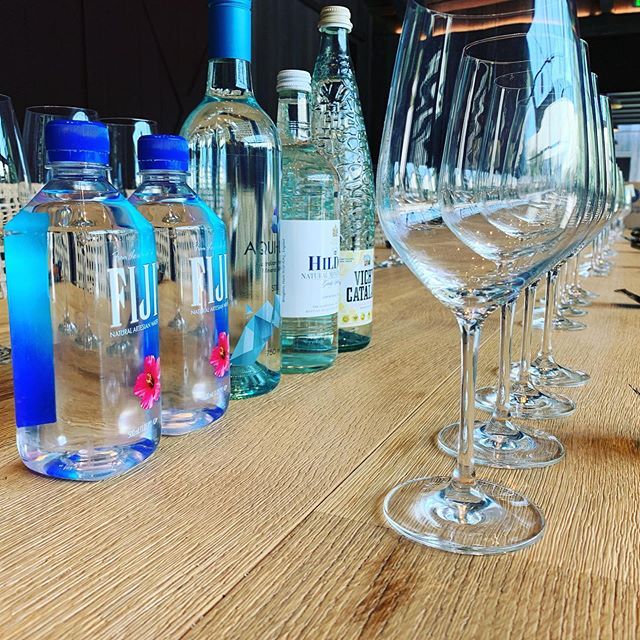
In the USA, the second school. Credit: Martin Riese
Also German, Martin Riese, based in the USA, in Los Angeles, is the Public Relations of the profession, publicizing the importance of water in The New York Times and starring programs such as Conan on the American network TBS, Good Morning America, CNN etc. In August 2018, he joined Michael Mascha, founder of the Fine Water Society, and created the Fine Water Academy.
Michael helped create the premium water category, Fine Water (our natural mineral water) and preaches that, like wine and coffee, water has different terroirs, and each one can and should match better with the food and wine that a customer chooses. Michael also wrote a book on the subject, entitled “Fine Waters – a Connoisseur’s Guide to the World’s Most Distinctive Bottled Waters”, available on Amazon.com.
With his German verve, it is interesting to follow Martin Riese on his social networks, as he is a staunch critic of some players in the US mineral water market. Even recently, he made a list and published on his Twitter and Instagram, the five worst American watermarks: Niagara, Kangen, Penta, Essentia and Smart. For Martin, the average American has a habit of filtering water to remove all minerals. “In that case, it is better to drink tap water! And, if you are in a restaurant and they offer you bad water, return it and order a beer!!!”, he emphasizes.
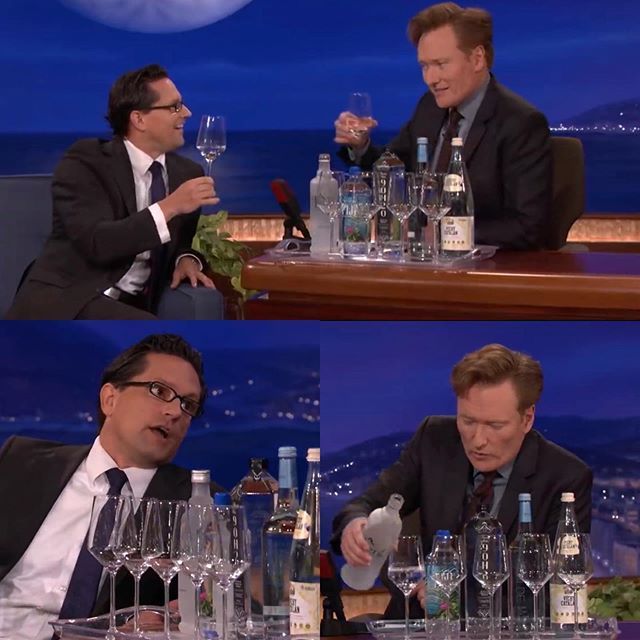
Credit: Martin Riese
Martin is adamantly opposed to what Americans call Purified Water (all mineral salts are removed) and distilled water, which he advocates being used only in car batteries. “If it is not mineral water from the source, you’d better drink tap water,” he rages!
Currently, all Academy courses are online and offer several options: for those who wish to have a Water Sommelier certificate, the course lasts two to three weeks and costs around $ 2,100. But there are more palatable options for your pocket, should you wish to start your studies in the water world. In this case, the ideal scenario is to start with Fine Water 101, a four-hour course, where students learn about Fine Water (mineral water from the source), sources, characteristics, labels, harmonization of water and food, tasting, and introduction to some of the most iconic waters on the planet.
Rodrigo Rezende – the first and only water Sommelier in Brazil
Rodrigo Rezende, a miner from São Paulo, is an advertiser who has owned a beer house in Itaúna and became interested in the world of wines, having taken several Sommelier courses and, six years ago, entered the mineral water business. He discovered that the water also had terroir, but no one talked about it. He decided to deepen his studies and looked for a course in Brazil. As he did not find it, he ended up studying with Martin and Michael, at the Fine Water Academy, in the online. It is also certified by ADAM (Associazione Degustatori Acque Minerali), from Italy.
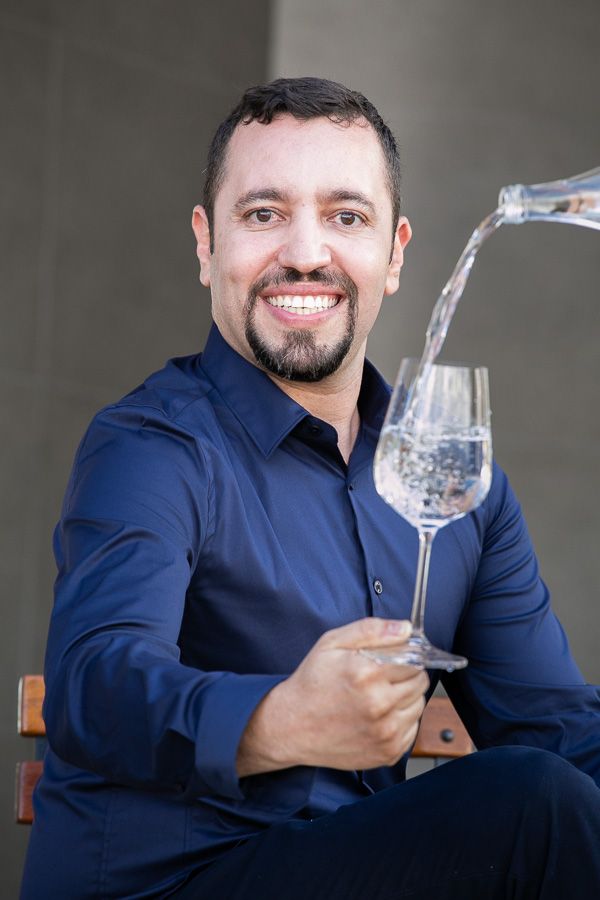
Credit: Natália Diniz
Rodrigo guarantees that the quality of the water is as important as that of the wine. He explains it a little more: “natural mineral water, or Fine Water, is produced solely and exclusively by nature, in the form of rain, and which naturally contains mineral salts such as sodium, bicarbonate, calcium, phosphate, magnesium, potassium, among others. These minerals make up the TDS of the water, that is, the Total Dissolved Solids, in English, or Evaporation Residue, in Portuguese, and it is the amount of TDS that influences the flavor, since the higher the TDS, the greater the minerality. And minerals, as Peter Schropp explained at the onset of the story, have a flavor.
Water can be either captured from natural sources, such as rivers and streams, also known as artesian wells or artificially, which is a method used by large bottling companies. “Nature delivers the perfect water to us, but when it is handled by man, it can be contaminated”, he says.
The waters come from glaciers (most of Europe’s water sources, volcanic rocks, and hard mineral rocks, as is the case with Brazilians).
“In Brazil, we have an enormous abundance of water sources, about 1000, the vast majority of which are located on small private properties, mainly on the coast of the country. But we do not have mineral waters with TDS above 300, depending on our soil,” he explains.
“We also have few gas sources in Brazil, most of which are located in the states of Minas Gerais, São Paulo, Paraná and Rio Grande do Sul.“ Minas Gerais alone has 69 active sources,” says Rodrigo.
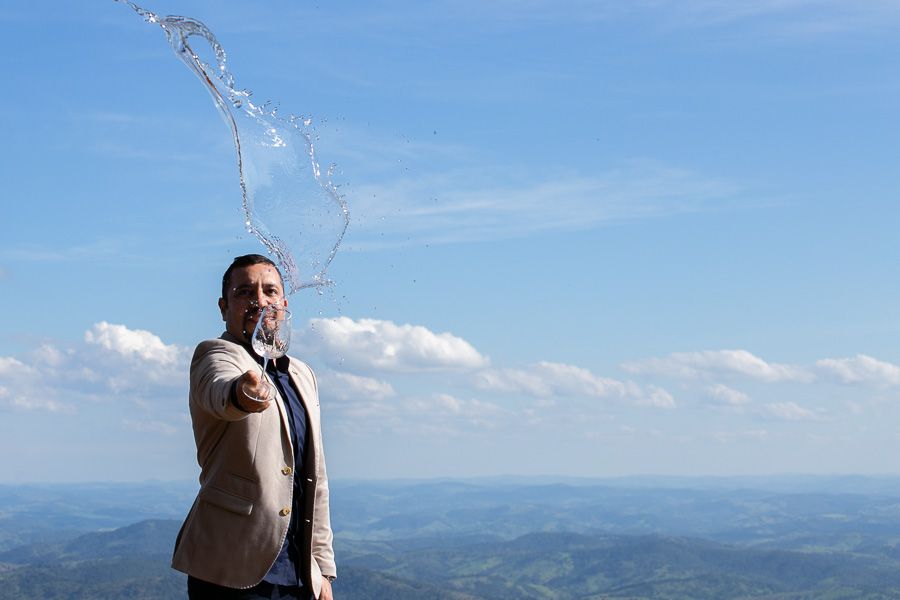
Credit: Natália Diniz
One of its roles is to taste and catalog all Brazilian mineral waters and also to disseminate the importance of the theme in the preparation of specialty coffees and teas. “It is important to study what type of water a coffee producer is using to wash the cherries, in the post-harvest period. This water can and should be analyzed by technicians to raise its TDS, since if it is too high, it might compromise the final quality of the grain.
And for the preparation, one must take into consideration the type of grain, the roasting, the method of preparation and the quantity to choose the water. In the French press, for example, where the grind must be a little bit coarser, one should use water that has a slightly higher hardness,” he explains.
In the case of teas, the expert’s tip is to choose water that should have as little TDS as possible, so as not to interfere with the flavor. “The fewer minerals it has, the less it will oxidize the leaves of camelia sinensis,” he concludes.
Where to take the Water Sommelier course:
Germany – Doemens Savor Academy – www.doemens.org Doemens Water Sommelier courses are taught by Peter Schropp. It was the first school worldwide to offer the subject.
Water Sommelier – Union: www.waterspmmelier-union.org
Italy – Associazione Degustatori Acque Minerali (ADAM) in Milan, www.degustatoriacque.com
Purelogica Academy in China – purelogica.com
Korea International Sommelier Association (KISA), South Korea – www.sommeliers-international.com

